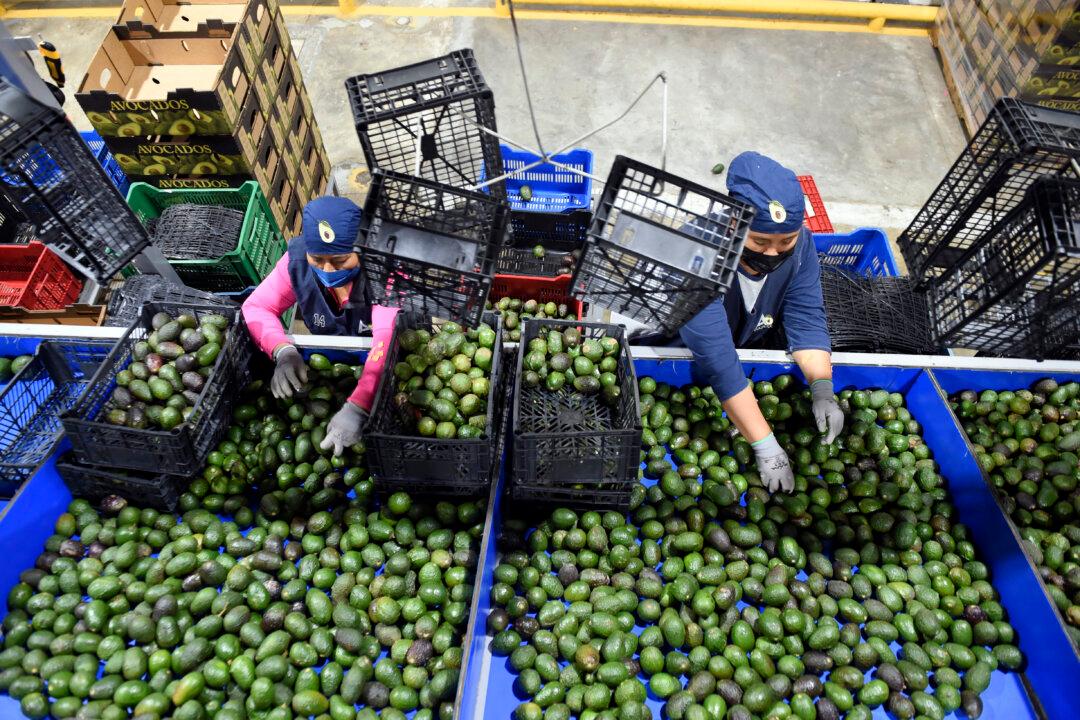The United States has temporarily suspended safety inspections of avocado and mango shipments due to security concerns for its U.S. personnel in the Mexican state of Michoacán—the country’s main avocado-producing state.
In a statement on June 18, U.S. Ambassador to Mexico Ken Salazar said two employees of the Animal and Plant Health Inspection Service (APHIS) of the U.S. Department of Agriculture (USDA) were recently “attacked and detained” while inspecting the tropical fruits in Michoacán.





